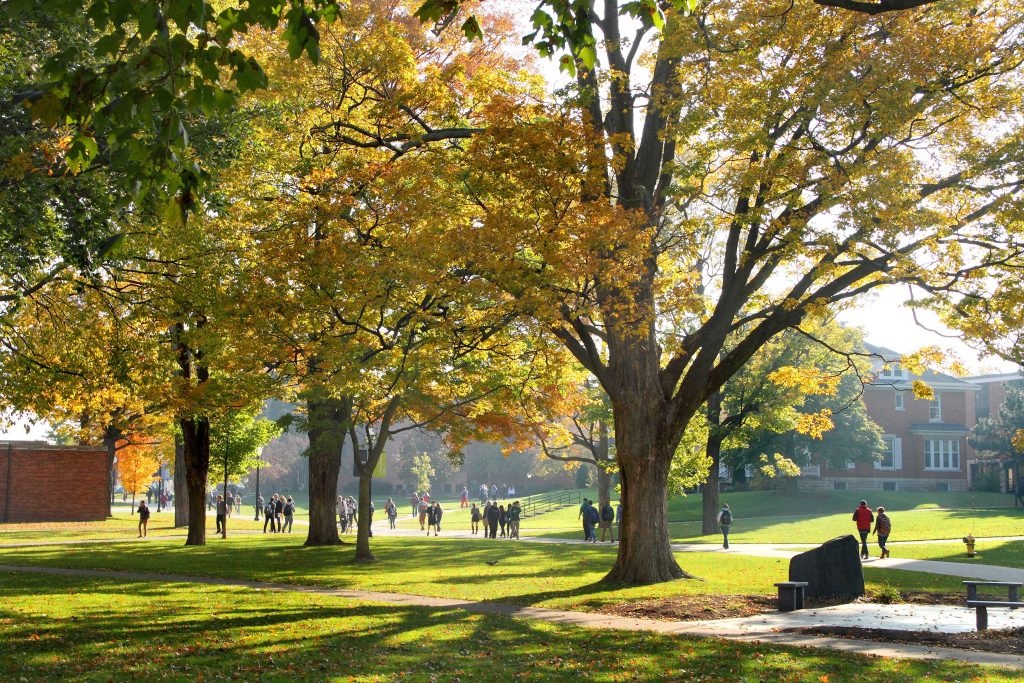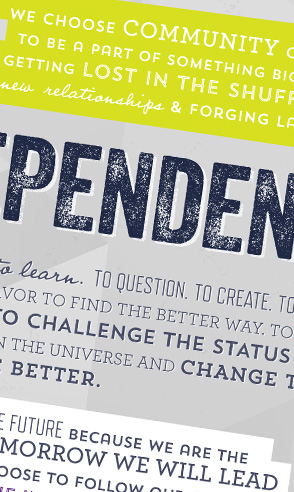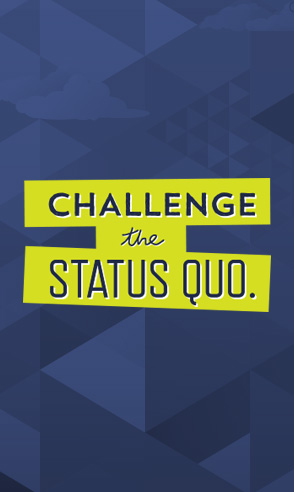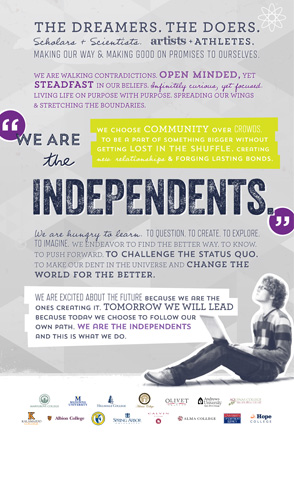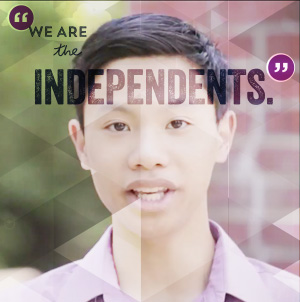Blog - Category: College Tips
Finding a Job After College
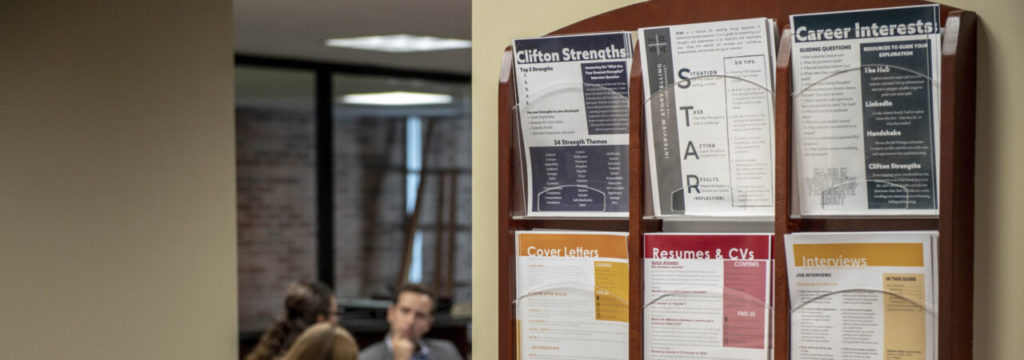
Written by Katrin Surkan
The post-college search for work can be nerve-wracking. After becoming expert students from the ages of 5 through 22, we are expected to know where to begin becoming experts in a world where we are paid for our skills. The four-ish years of college encourage young adults to find themselves, but then they are loosed to find a job. I am one of the lucky ones, coming into my senior year with a contract for post-college work. How did I find my job after college? Some luck, some preparation, and plenty of help.
I received some excellent advice all four years, and that helped me gather courage, experience, and the necessary information to take the next step in my search.
- Adapt your resume to the job description.
Make the resume easy to read. Fix formatting, keep all descriptions to one line, have a maximum of three descriptions per experience (remove the subjects and start with an active, exciting verb that ideally was in the job description itself), and sort by most recent date on top. Divide your resume into three or four categories that pertain to the job you are interested in (e.g. Experiences, Education, Extracurriculars, Leadership, Honors and Awards, Skills, Languages, Adventures, etc.). Keep it neat and to one page.
- Get started by doing something, anything!
Start early—freshman year—trying out (even volunteering for) jobs, opportunities, and internships that might interest you as a career. You may find that you hate something you thought you loved. Or that you could be paid for something you already do. Or you might fall in love with something that you had not known existed. Say yes to random little chances to help people, internship applications, on-campus jobs, talking to strangers, and anything that piques your interest. Better to know sooner rather than later what matters to you!
- Get an interview.
I was a horse tour guide in Iceland for a summer. Even though that has little to do with my potential careers, it makes interviewers more likely to invite me in to speak because they want to know more. I am sure you have done something that few people know much about, so get them to invite you in to ask questions by putting it noticeably on your resume or mentioning it in your email. It also helps to know what the person you are writing to (HR manager, intern coordinator) enjoys hobby-wise, so see if you can hunt down a hobby or two of theirs.
- Play to your strengths.
If you have excellent soft skills, go network and meet people. Apply for jobs that have you managing or dealing a lot with people. Look for opportunities to help or support others, as it will make them more likely to reciprocate—and jobs come from the most unlikely places! If you are introverted, focus on your skills and strengths in applications. Emphasize your abilities and expertise. Find a group that needs what you can offer.
- Be not afraid!
Employers were once young job seekers like you, and people are more helpful than you might expect. Ask questions, ask for the job, ask for an informational interview over LinkedIn or through Career Services. Talk to people you respect and to people who intimidate you. Chances are, you are just what they were looking for.
- Get an on-campus job.
Already, my freshman year, I began applying for on-campus jobs, practicing my cover letters, resumes, and informational interviews where little was on the line. By taking a small job on campus, I also acquired a reference for future applications! To help with my resume and letters, I met with Career Services and attended events that looked interesting, like the talk by an alumnus who graduated with a degree in philosophy and became a cybersecurity contractor. He inspired me to…
- Think beyond the major!
My degree is a mark of my interests rather than my skills. Yes, as an economics major, I can talk about supply and demand, but I could do anything with it!
Some alumni who have gone on to do fantastically interesting careers are…
Phillip Wegmann, ’15, a political economy major, is a correspondent at the White House
Kelsey Brakel, ’12, a biology major, became a veterinary pathologist
Stephanie Benson, ’03, a Hillsdale student-athlete who started a restaurant in Mississippi
Rob Schlitts, ’06, a communications major, founded a phonathon company, Wilson-Bennett Technology
Margaret Handel, ’17, an English major, became a commercial mariner
Madeline Johnson, ’17, a philosophy major, became an urban planner
Lydia Hall, ’19, an English major, became an associate production editor
Seven Tips for your Best College Interview
Originally posted at https://www.hillsdale.edu/hillsdale-blog/after-hillsdale/seventipsforyourbestcollegeinterview/.
Written by Kelly Kane.
Distinguishing yourself from other applicants is an important consideration when preparing your college applications. How best can you position yourself for admission and even scholarship? Meeting deadlines and submitting strong application materials are a part of the answer, but optional items like the college interview can be equally important.
Interviews are not required for admission to Hillsdale College, but they are strongly recommended. An interview can help to strengthen your application—and your competitive edge for admission and scholarship. Its purpose is evaluative and informative, allowing both parties to learn more about one another.
Whether you’re intimidated or excited by the prospect of an interview, here are Hillsdale College admissions rep Kelly Kane’s seven tips to help you succeed, informed by more than six years of admissions experience (and lots of interviews):
- Make a good first impression. Arriving a few minutes early will allow you the time to find where you need to be and have a moment’s rest to put your mind at ease before beginning. If for any reason you will be tardy or need to miss your appointment, be sure to call ahead.
- Remember the interview is a conversation, not a test. You should plan to talk about things like your college search, academic work, extracurricular activities, goals for the future, and how Hillsdale might be a good fit. You are the expert on the subject of yourself, so feel confident you are well prepared to answer questions about your background, interests, experiences, and aspirations. We will not be asking you to solve a calculus equation or translate any epic poetry from the Greek during your interview, so no need to worry too much.
- Be ready to provide the “hows” and “whys” behind your answers—remember, we are looking to understand the you that is not already presented on paper. Why is Hillsdale part of your college search? How do you hope to grow during your years at Hillsdale? What is it you love about your favorite class? Be authentic and truthful. If your answers are only an effort to impress, you will struggle to explain yourself when pressed.
- Consider the length of your responses. Find the happy medium between something too brief and minutes-long monologues. Focus on the most relevant information you are looking to convey, and do so clearly.
- Avoid making assumptions. Try not to assume the interviewer necessarily agrees with your perspective. Be prepared to present an argument for your assertions, or to define your terms.
- Take the time you need to consider your answers. It is not impolite to take a short pause to organize your ideas before responding to a question: “I don’t know, I’ve never thought about that before. May I have a moment?” Taking the time to be thoughtful can be to your advantage, and help you avoid saying something you may later wish was said differently.
- Ask questions in return. In fact, prepare a list in advance of any questions you may have about Hillsdale. Demonstrate the sincerity of your interest in specific aspects of Hillsdale’s curriculum or community, or ask the interviewer for their experiences or advice.
Kelly shares, “I am often asked by prospective students how to best position themselves for earning admission or scholarship to Hillsdale, and the interview is always first on my list of recommendations. With campus, regional, and even virtual interview options available, I encourage you to not only take advantage of the opportunity, but with the benefit of these seven tips, to make the most of it.”
When choosing which colleges you’ll apply to, remember that Michigan’s top 14 independent colleges and universities set themselves apart from bigger public institutions by encouraging students to forge success by following their own path. The colleges are smaller and emphasize community over crowds. Often less expensive than public institutions, the independents boast higher four-year graduation rates and smaller class sizes for a truly unique and affordable experience.
Be bold. Be different. Go independent.
When is the best time to visit colleges?
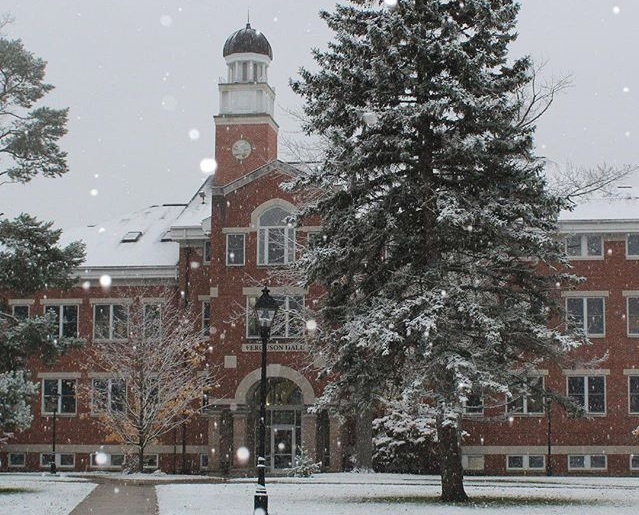
(Albion College, voted 12th Most Beautiful College in Winter)
It’s winter, and the tundra is setting in – at least it is here in Michigan. The last thing you are thinking about is planning a trip to visit campuses. Those long walks across snow-covered quads are certainly less appealing when the temperatures are teetering at the same level as the number of layers you’ll be wearing to stay warm. Or maybe you are a freshman or sophomore, and it’s just “not time yet.”
So, “When is the best time to visit?” The answer may not be what you expect. Here are some tips for getting the most out of campus visits:
Time of year:
As summer strolls in and the school year winds down, families across the country are gearing with plans to visit college campuses. Tours are crowded, staff is minimal, and quads are relatively barren. Although the summer months are more convenient for your time, ideally you should try to plan your visits when classes are in session and the campuses are full of life. Think of it like trying on a pair of new shoes: do you get the proper assessment while sitting? No, you get up, walk around, and perhaps jog in them… as it should also be done visiting campuses. Simulate the day-to-day as if you are attending the school. It doesn’t necessarily mean go in the dead of winter, but consider this: it may be cold, but it’ll also be cold while you attend, won’t it?
Age of student:
It can be very rewarding to visit colleges and universities before your junior and senior year (read: before it’s decision time). You are less concerned about choosing and “buying” when you are simply “window shopping” and more interested in checking out the inventory. Expose yourself to as many different kinds of places—big schools, small schools, research universities, liberal arts colleges, urban campuses, places way out in the country—to develop a broad perspective of all the different options. Then, when it is time to make a decision, you’ll have a better foundation on which to choose.
Before stepping foot on the first campus (and each one after that…):
Your new mantra: Relax, enjoy, decide later. Resist the impulse to judge immediately, good or bad. Your first reaction is bound to be emotional, and usually overly positive—college is really cool! Sleep on it. Weigh your impressions against the other schools you visit and try to remain as objective as possible so your rose-colored glasses don’t allow you to overlook things.
How to choose:
As you visit the campuses, allow your senses to guide you. Really like something? Take note of it. Feel like something’s missing? Take note of it. Gut instinct is usually pretty accurate. Additionally, the perceptions from your visits will come in handy when completing your college applications. Remember this: tying personal experience to the campus environment will blow the minds of the admissions department!
What to look for:
Focus on fit. We perform at our best when we have a level of comfort, belonging, and value. Questions to ask yourself: How does the college meet my academic needs? Will I be challenged appropriately? Is the style of instruction a good match for how I learn? Does the college offer a community that makes me feel “at home?” Does the college offer extracurricular activities that interest me?
After the visit, before you leave:
Connect with the recruiter. Colleges and universities typically assign admissions personnel to different areas of the country for recruiting efficiency. If your area’s recruiter is available, definitely introduce yourself. Either way, get that person’s contact information. Consider him/her as your “go to” person when you have important questions later in the admissions process. And remember this: there is nothing insignificant nor too embarrassing to ask. The admissions staff is there to help!
What to do next:
Record your visit. Make notes as soon as you are able. The more campuses you visit, the more they will begin to blend together, especially from memory. Take pictures to give yourself a visual index of what you’ve seen to avoid confusion later.
And finally:
Enjoy the process. It can be easy to get lost in the excitement and have that energy turn into anxiety. Relax. Start the search early. Visit during the school year to witness the campus’s true environment. Trust your senses and take notes.
As you map your college visit road trip, include a few of Michigan’s top 14 private colleges and universities on your list. These schools are purposefully smaller and emphasize “community over crowds.” Often comparable in cost to Michigan’s public institutions, the independents boast higher four-year graduation rates, outstanding faculty who help students forge their own paths, and smaller class sizes for a truly unique and personal experience.
Be bold. Be different. Go independent.
Questions to Ask on your Next College Visit
Colleges offer open houses and campus tours all year long. But summer can be a great, low stress time to schedule a campus roadtrip. Nothing beats getting your feet on the ground to decide if a college is the right fit for you, so don’t wait to schedule one (or three). Absorb the tours but wander off the beaten path. Talk to students in the bookstore. Go to the campus coffee shop.
Is this a place you can picture yourself? So much of campus tours are about feel but it can be an overwhelming process. There’s a lot to absorb. Take lots of notes and snapshots to refresh your memory in a few months.
If you need a kick starter on things to ask, here are some questions to pose to yourself and your tour guide:
College and Campus
- Is the size and location of the campus appealing to you?
- Is the character of the campus appealing to you?
- Do the programs and majors offered fit your potential career interests?
- What type of orientation introduces a new student to campus life?
- Are there stimulating social and intellectual opportunities — lectures, debates, concerts? Are they well attended by faculty and students?
- Where do most students live — on or off campus?
- What percentage of students return the following year?
- What is the graduation rate after 4 years? 6 years?
Teaching and Advising
- What is the average class size?
- Who teaches first-year classes — professors or teaching assistants?
- How much exposure to top faculty will students have in their first two years?
- How extensively does the college rely on part-time or adjunct faculty?
- Are faculty members available to talk to first-year students about their academic disciplines and provide career guidance?
- What kind of email availability and office hours do professors offer?
- How many students are assigned to an academic advisor? Will the advisor be a professor?
- Is good teaching valued and used as a criterion for tenure and promotion?
- Does teaching include more than lecturing? Are students encouraged to work together, to discuss topics in class, to do self-directed independent projects?
- Can students work with a faculty member doing academic or scientific research while they are undergraduates?
- Do students participate in a senior seminar or design a senior project to demonstrate mastery of their major field of study?
- How is technology used in teaching and learning?
Support Services
- Does the college have a program to identify students having academic or personal issues, and programs to help them?
- Are tutors, skill centers, writing assistance, counselors provided?
- What kind of tools, resources and training does the library provide?
- What kind of technology (Wi-Fi, laptops, computer labs, etc.) is available?
Beyond the Classroom
- What happens after class and on weekends?
- Do students take advantage of athletic, cultural, religious or other campus events?
- What kind of off-campus or study abroad programs does the college offer? What percentage of students participate?
- What internship or career exploration opportunities are available?
- What kinds of student organizations are on campus?
Values
- How does the college demonstrate a commitment to diversity?
- What opportunities are there for community service and/or religious activities?
- How do students treat each other?
Careers
- What services does the career development office provide?
- What kind of careers do alumni have?
- Do alumni help identify opportunities for recent grads?
- What kinds of networking opportunities exist for alumni?
As you map your college roadtrip, include a few of Michigan’s top 14 private colleges and universities on your list. The colleges are purposefully smaller and emphasize community over crowds. Often comparable in cost to Michigan’s public institutions, the independents boast higher four-year graduation rates, outstanding faculty who help students forge their own paths, and smaller class sizes for a truly unique and affordable experience.
Be bold. Be different. Go independent.
Study Proves Affordability of Michigan Private Colleges
You’ve probably heard it a million times. Private education is elite because only the elites can afford it.
The myth doesn’t come from nowhere. On average, advertised tuition at private colleges often exceeds public ones. But that doesn’t into account massive amounts of aid that lowers actual costs and decades of recruitment efforts that make world-class education affordable to everyone.
Now, there’s a new study that proves the point yet again. Far more students from lower-income families attend Michigan’s top 15 independent colleges and universities than wealthy ones, according to a nationwide study that tracked income and attendance records of more than 30 million students.
At schools such as Olivet College, Siena Heights University, Spring Arbor University, more than 40 percent of the student body comes from families making $65,000 or less per year.
It’s a third or more of the student body at Adrian College, Aquinas College and Andrews University; one quarter at Alma College, Madonna University, University of Detroit-Mercy and Albion College and more than 15 percent at Calvin College, Hope College and Kalamazoo College, the study found.
And the notion that it’s just Richie Riches at private schools? False again. Students from families in the top 1 percent of income ($630,000 or more) comprise a vast minority at Michigan’s private colleges – usually 1-3 percent or less.
We know that’s a lot of numbers. But the point is a world-class private education is within reach.
Students at Michigan’s top 15 independent colleges and universities receive far more financial aid, on average, than counterparts at public institutions. At most of our schools, more than 93 percent receive aid, vastly reducing advertised tuition and making it as affordable — or more so — than big state schools.
And unlike public universities, students at Michigan independents actually graduate in four years, giving them a head start on their career — and extra salary — over their public peers.
Purposefully smaller, Michigan’s private colleges offer a vastly different experience. Classes are small. Award-winning professors actually teach class — rather than TAs — get to know students and help them chart their own path to rewarding careers.
And students immediately are part of a network of alumni who are leaders in their fields. That’s because community, not crowds, are cherished.
Be bold. Be different. Go independent.
Top 10 Things High Schoolers Should Do to Get Ready for College

Happy New Year! Time for new beginnings, new hope and, sure, even some new worries. But getting ready for college doesn’t have to be one.
There’s tons of resources out there to help map out the journey. As with any monumental journey, the best bet is to bite it off in short increments and start early.
Here are ten tips to make your transition to college easier.
1. Make a calendar
Goals are easier if they are visualized. Get a giant desk calendar and some fancy pens and highlighters. Stick it on your wall and mark it up with dates for specific tasks like taking the SAT.
2. Practice, practice, practice
Register for the preliminary SAT and National Merit Scholarship Qualifying Test. The tests are usually given in October, help you prepare and can be used to enter into scholarship competitions. Best of all: They can be taken in a classroom.
3. Make a list. Check it twice
Write down a list of 10-20 schools to investigate – we think these 15 outstanding independent colleges and universities in Michigan should be on the list. Separate them into categories: Top choices, tier twos and fallbacks. Dream big. Do your research. Talk to counselors and teachers.
4. Research Scholarships
Tons of money is available. Millions of dollars go unclaimed each year. Get your money’s worth from the guidance counselor, do your research and start prioritizing. We really like this one.
5. Letters of recommendation
Most wait until the last minute. Don’t be that guy. Ask early.
6. Campus visits
Colleges offer open houses and campus tours all year long. Don’t wait to schedule one (or three). Absorb the tours but wander off the beaten path. Talk to students in the bookstore. Go to a coffee shop.
Is this a place you can picture yourself? So much of campus tours are about feel but it can be an overwhelming process. There’s a lot to absorb. Take lots of notes and snapshots to refresh your memory in a few months.
7. The nitty gritty
Fall of senior year is typically when the search hits high gear: Taking or retaking SATs or ACTs, writing and perfecting admissions essays, scheduling interviews, exploring costs and financial aid and completing the free application for federal student aid.
Phew. Take a breath. It’s going to be OK.
8. Enter to win the easiest scholarship contest on the planet
Top off your college fund by entering the We Are The Independents monthly scholarship drawing from the Michigan Colleges Alliance. You could win $2K in 2 minutes.
9. Make a call
Decisions, decisions. At some point, fate is out of your hands. It can be an anxious time. But if you’ve done everything on the list, take a bow. Even if you haven’t but have met all the deadlines, take a bow. There’s nothing you can do about it now but wait.
We understand that at Michigan’s top 15 independent colleges and universities. The colleges are smaller and emphasize community over crowds.
Often less expensive than public institutions, the independents boast higher four-year graduation rates and smaller class sizes for a truly unique and affordable experience.
Be bold. Be different. Go independent.
Kalamazoo Promise Makes Private Education Within Reach
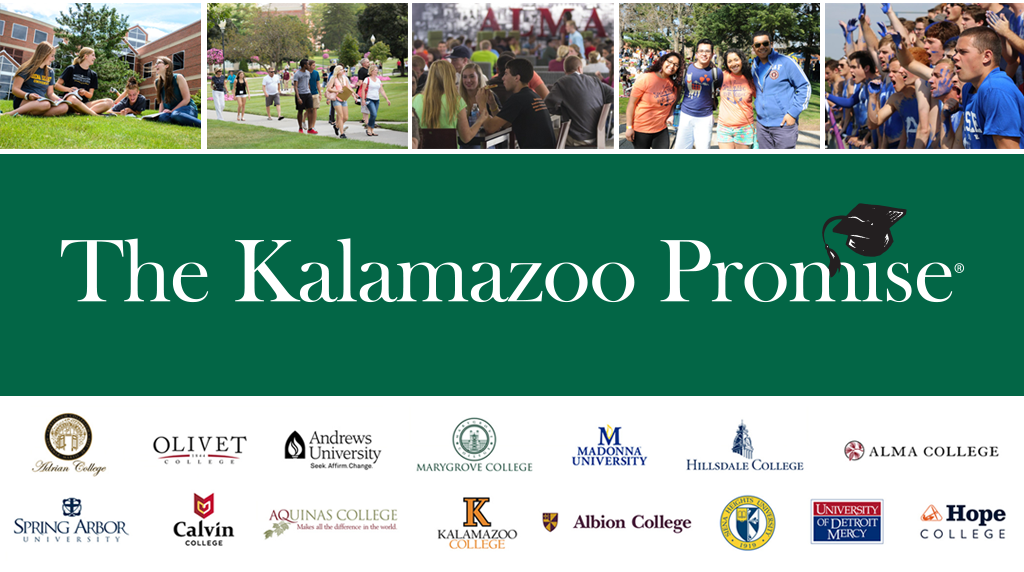
Almost everyone nowadays can cite scary statistics when it comes to the cost of college education.
Nationwide, the average annual tuition at private schools has more than tripled in 30 years jumping to $32,405 this year, according to inflation-adjusted statistics from the College Board.
But the cost of an elite private school education is nothing for students in Kalamazoo public schools.
You read that right.
The cost of Michigan’s 15 independent colleges and universities is zero for students who graduated from Kalamazoo Public Schools and attended since kindergarten. Graduates who attended since at least seventh grade will receive 75 percent of their tuition.
The Kalamazoo Promise is a revolutionary program that is changing lives and putting college in reach for 5,000 eligible graduates since it was launched and funded by anonymous donors in 2005.
The schools now send 85 percent of students to college, whose graduates can expect to earn $1 million more over their lifetime than peers whose education stopped at high school.
And what an education they can get, especially at Michigan’s independents: Adrian College, Albion College, Alma College, Aquinas College, Calvin College, Hillsdale College, Hope College, Kalamazoo College, Marygrove College, Olivet College, the University of Detroit Mercy, Andrews University, Madonna University, Siena Heights University and Spring Arbor University.
The schools pride themselves on helping students forge their own path. Classes are taught by professors, not teaching assistants, with average class sizes of just 17.5 students.
The independents open doors to a host of careers, from business and engineering to education and nursing, supported by a nurturing network of alumni who have become leaders in their fields.
And the independent colleges look like the world around them. One in 4 students at Michigan private colleges and universities is African American, American Indian, Asian, Hispanic or Latino.
Be bold. Be different. Go independent.
It’s Not too Late to Attend Top Michigan Colleges THIS Fall
It’s that heady time of year again. Graduation season. Time for caps, gowns and a whole lot of excitement.
And maybe just a smidgen of anxiety too — especially for those receiving diplomas who still aren’t sure what comes next.
First, take a deep breath. Then realize: It’s still not too late to attend college in the fall, especially since many of Michigan’s 15 top independent colleges and universities offer rolling or late admissions.
Rules vary by college. But typically, rolling admissions discard traditional application deadlines. Instead, students are accepted until class sizes are met for the following term. That often means that it’s not too late, even in June, to attend one of the finest colleges in the Midwest.
Aquinas College, Albion College, Alma College, Calvin College and Hope College all officially offer rolling admissions, while most other colleges accept late applications. And with firmer deadlines — such as Hillsdale College — still take applications for future semesters, giving students breathing room to chart their next chapter.
Best of all, applying online is free.
Get started by following the links above for those colleges, as well as Marygrove College, Madonna University, Adrian College, Olivet College, Andrews University, Kalamazoo College, Siena Heights University, Spring Arbor University and University of Detroit Mercy.
Like all admissions, there’s no guarantees. But the truth is it’s almost never too late to attend the college of your dreams. Worst case, it may take a little longer. Best case, the world is your oyster.
That’s because Michigan’s 14 independent colleges and universities pride themselves on accepting students who purposefully chart their own path.
National leaders in education, the independents boast graduation and employment rates that often exceed big public schools. Classes are taught by award-winning faculty who are experts in their field. Because class sizes are so low, professors form tight bonds with students and help chart their paths.
Committed to community, the colleges have deep networks of business executives and alumni who mentor students.
Often less expensive than public schools, the independents offer a truly unique and affordable experience that simply doesn’t exist at big state schools.
Be bold. Be different. Go independent.
Sorry, juniors. Winter break is a good time to start the college search
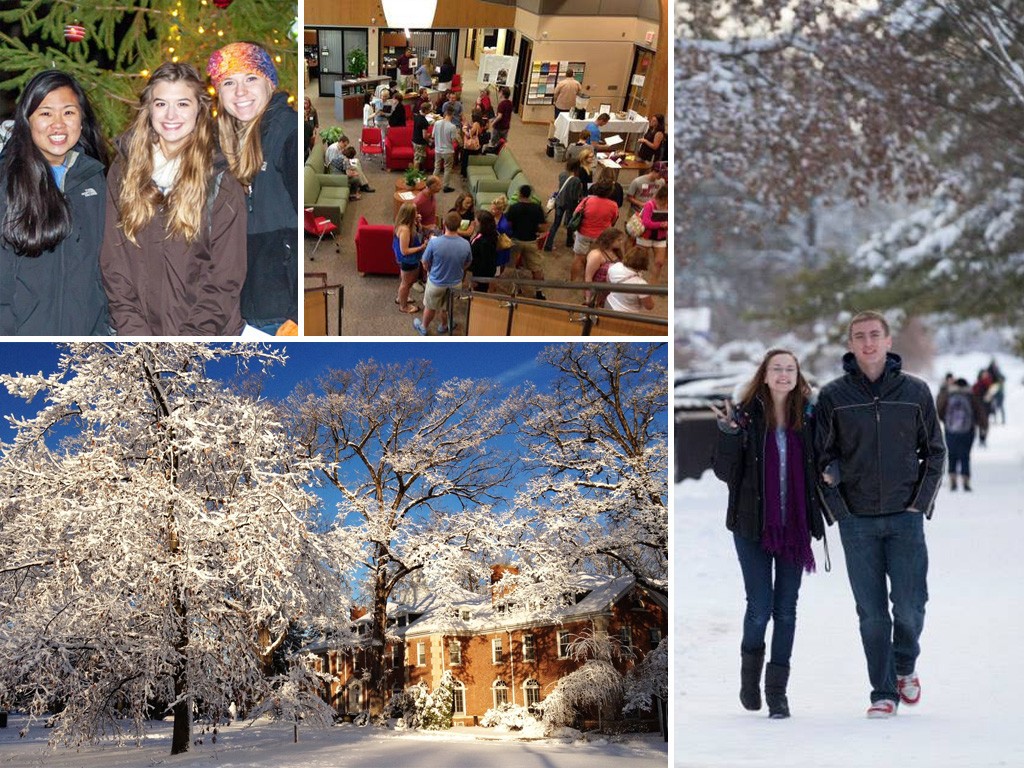
Instead of hitting the slopes or sledding hills this Christmas break, it’s a good time for high school juniors to start seriously thinking about their college search.
We know. It’s heresy to think of such things on break. But the fact is the next year and a half is going to be a whirlwind and now is the time to develop a plan for applying to colleges if you haven’t already.
Don’t freak out if you haven’t. The heavy lifting – essays, recommendations, tests – are still a ways off. But now is the time to start a schedule and chart a to-do list and timeline for the college search.
The good news: Most of this stuff now is quick and about laying a framework for the future. You’ll have plenty of time to see “Star Wars: The Force Awakens” for the fourth time.
So here’s a few easy goals for the college search during winter break.
- Write out a schedule or timeline of the college search process. There’s tons of resources online, including one from the College Board.
- RSVP for a campus visit day or two. Keep an eye out for special overnight visits or visit days for athletics, arts or majors. You can find plenty of interesting options on the We Are The Independents campus events schedule.
- Make an appointment with your guidance counselor to discuss ways to improve the process and any tips s/he may have.
- Review PSAT scores and look for areas of improvement. They typically arrive in December.
- Sign up to take the SAT in the spring. Register online or through school. Practice books are available online at The College Board.
- Start thinking about financial aid sources. There’s a good overview at studentaid.ed.gov
- If you’re in Advance Placement Program classes, register for AP exams when you get back to school.
- Take two minutes to enter the easiest scholarship contest you can win, the We Are The Independents monthly scholarship drawing from the Michigan Colleges Alliance.
That’s it. Go have fun. Sorry about the lack of snow. Or you’re welcome. Whichever applies.
And one more thing: Start researching Michigan’s top 15 independent colleges and universities.
Like you, the schools are truly unique and exceptional. All prize themselves on their award-winning faculty and providing a college experience that’s unlike those at traditional big state schools.
Class sizes are low. So students are taught by professors, rather than graduate students. They form lifelong bonds with professors, who are experts in their field and can help students discover their passions.
It’s one of many reasons the independents boast higher four-year graduation rates. And why graduates of independents are often quicker to find jobs in their fields.
And despite what you’ve heard, the colleges are often more affordable than state schools.
Be bold. Be different. Go independent.
Summer Homework: Getting ready for college
The hard work is done. The college application process is over. Summer’s almost here. It’s time for relaxing, quality time with the family and — oh yeah — serious high anxiety.
Hard as it is to believe, many experience an emotional letdown in the weeks after high school and start of college. You’ve worked so hard and been focused for so long that it’s easy to start breathing heavily after you finally exhale.
Take another breath. It’s going to be OK. Now make another list of things you need to do before you head off on this grand adventure. Here are five tips to get you started:
Keep reading. It sounds counter-intuitive. You’ve read so much to get good grades to get into college. College is all about reading. So read more? Yep. Your brain is a muscle. College is to high school what Denver is to Death Valley: It’s a higher elevation, so you need to acclimate yourself to longer reading assignments.
Get a job. Even if you think you know that college is expensive, you don’t really know until it’s Friday night, you have big weekend plans and you’re staring at an ATM bank balance of $9.04. Between fees and entertainment and late-night snacks that Mom and Dad suddenly don’t pay for, college requires significant disposable income.
Clean up Twitter. Remember applying for college and removing those embarrassing photos from Instagram? Do it again. This time, it’s not because admissions officers are peeping your Facebook. It’s because future friends are. And do you really want them to know you liked “Bad Grandpa”?
Spend time with parents. You will miss them. No matter what you think. Plan special nights with them together and individually. Make memories and take mental snapshots. Because homesickness is as inevitable freshman year as Taco Night at the dorm cafeteria.
Begin to reach out. Contact your roommate. Discuss who is bringing what. Start researching cheap textbooks. Start dreaming. Nothing awesome began with tiny dreams.
Because soon, you will chart your own path. And whatever you do, follow your passion, an approach that guides Michigan’s top 15 independent colleges and universities.
Academically rigorous, the schools offer small class sizes. Their faculty are experts in their field and forge lifetime bonds with students who value communities over crowds.
Often less expensive than public institutions, the independents boast higher four-year graduation rates and smaller class sizes for a truly unique and affordable experience.
Be bold. Be different. Go independent.

